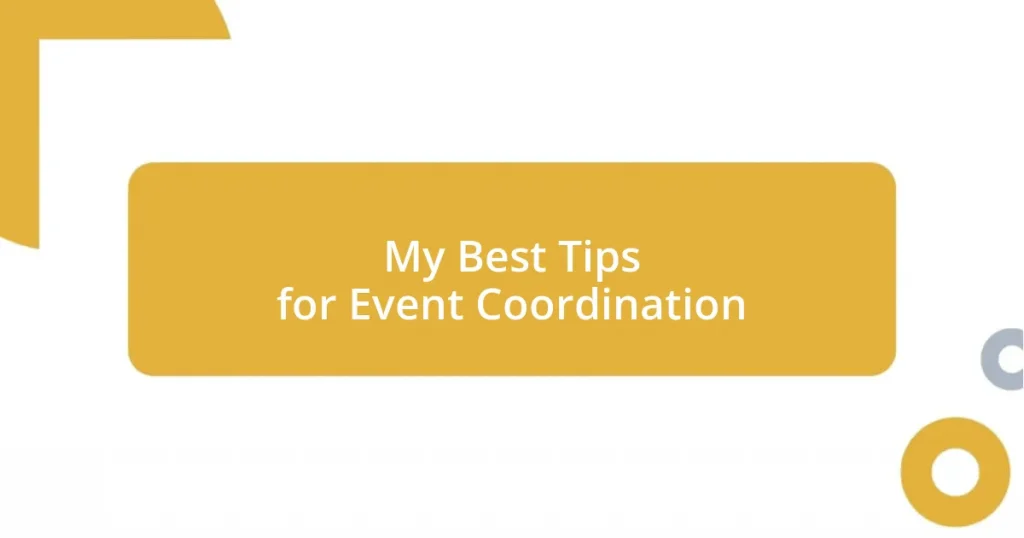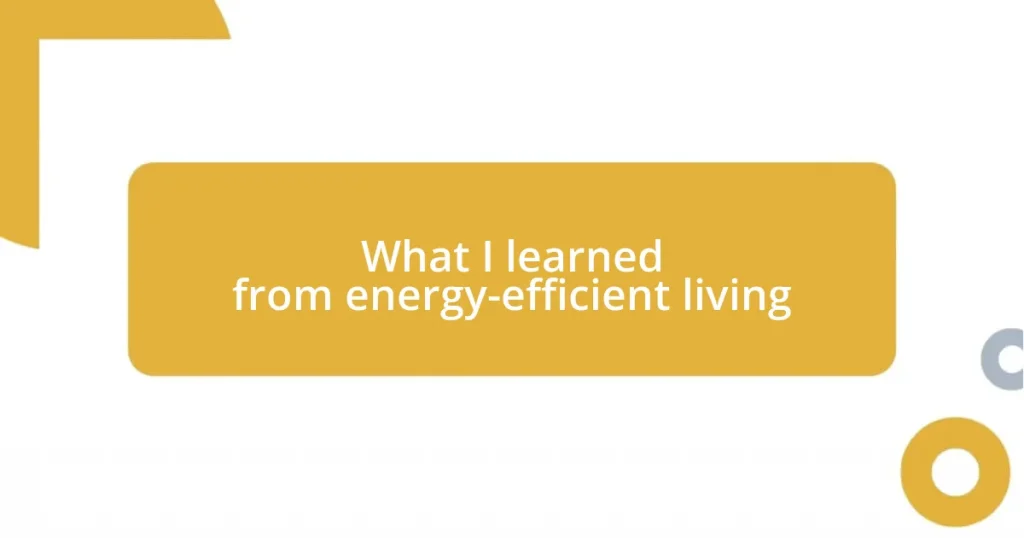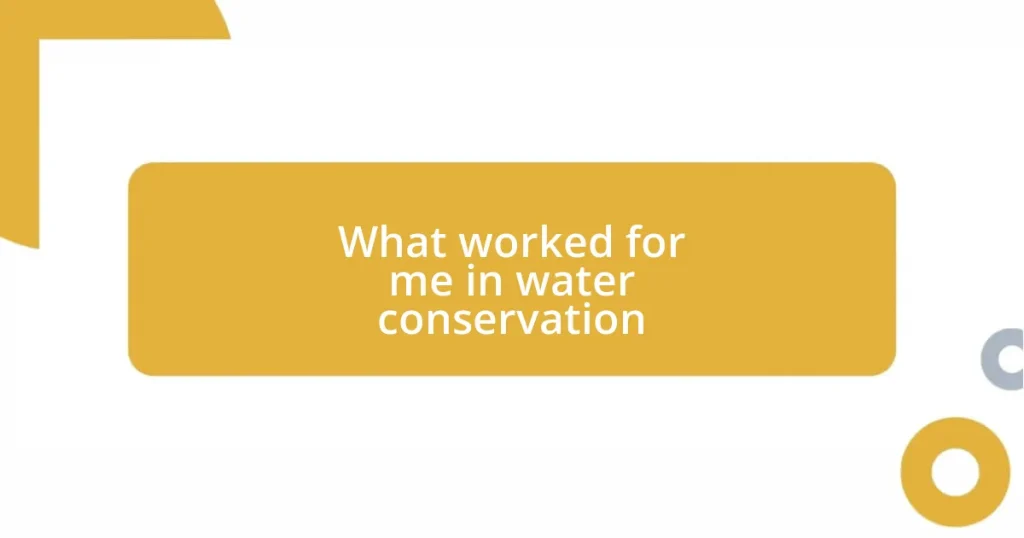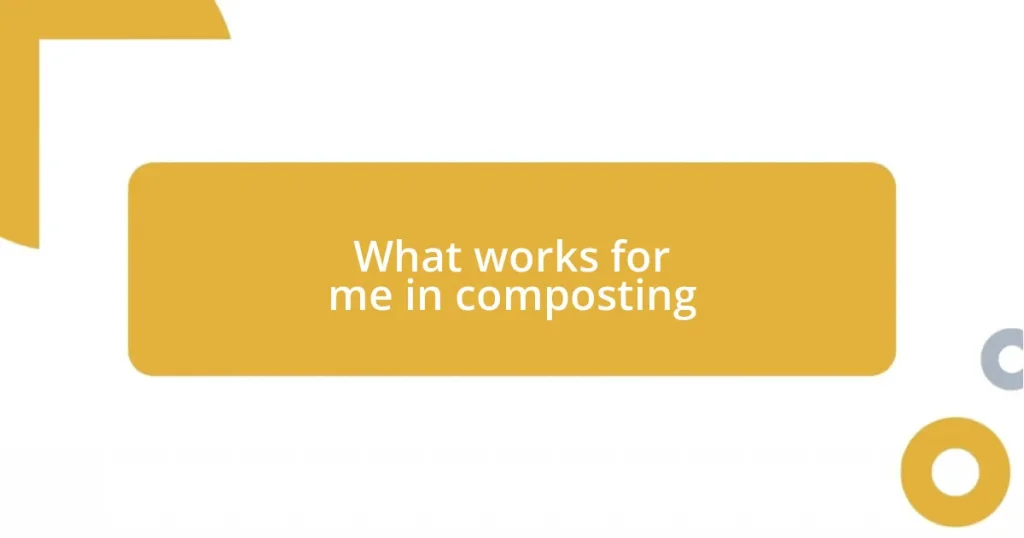Key takeaways:
- Event coordination involves understanding the audience, effective communication, and aligning event elements with purpose.
- Essential skills include organization, adaptability, and relationship-building to manage unexpected challenges and foster support.
- Budget management requires creating detailed plans, prioritizing spending, negotiating with vendors, and having a contingency fund.
- Post-event evaluation should involve immediate feedback collection, team debriefings, and data analysis to inform future events.

Understanding Event Coordination
Event coordination is like conducting a symphony where every detail counts towards a successful performance. I remember my first event; the adrenaline rush was palpable when I saw everything coming together. It’s not just about logistics; it’s about creating an experience, and I often find myself wondering—what will my guests remember most?
At its core, event coordination requires an intimate understanding of the audience and objectives. I learned this the hard way when I spent hours arranging elaborate decorations for a corporate lunch only to discover that the attendees wanted a more laid-back vibe. It made me realize the importance of aligning every element with the event’s purpose and the audience’s expectations.
Moreover, effective communication is paramount in event coordination. There have been moments when a miscommunication led to last-minute changes, making my heart race as I scrambled to find solutions. How often do we underestimate the power of clear dialogue? From vendors to clients, every conversation holds the potential to either elevate an event or throw it into chaos, and I’ve felt that pressure firsthand.

Essential Skills for Event Coordinators
Being an event coordinator requires a diverse skill set to effectively manage all aspects of an event. One of the most critical skills is organization. I’ve found that keeping meticulous notes and to-do lists prevents chaos and makes it easier to track the progress of various tasks. There was a time I skipped this step, thinking I could remember everything, and it nearly derailed the entire event! Now, I can’t stress enough how vital organization is to ensure everything runs smoothly.
Additionally, adaptability often becomes a life-saver. I vividly recall a wedding where the venue’s power supply failed just hours before the ceremony. Instead of panicking, I gathered my team, brainstormed alternatives, and we quickly pivoted to an outdoor setup. This experience taught me that flexibility allows us to embrace unexpected challenges, transforming potential disasters into memorable moments.
Finally, relationship-building is an essential skill. Over time, I’ve forged connections with vendors, venues, and colleagues. At one particularly memorable event, it was these relationships that delivered last-minute support when we ran into a small hiccup with catering. To me, every interaction is an opportunity to cultivate a support network that can enhance the quality and execution of any event.
| Skill | Description |
|---|---|
| Organization | Keeping detailed notes and lists to track progress and prevent chaos. |
| Adaptability | Being flexible and responsive to last-minute changes and challenges. |
| Relationship-Building | Connecting with vendors and colleagues to create a supportive network. |

Tips for Budget Management
Managing a budget can feel like a high-wire act, especially when you want everything to be flawless. I’ve faced moments when I realized I had strayed too far from my budget, and the panic set in as I searched for ways to cut costs without sacrificing quality. One time, I switched to a more affordable venue just weeks before an event, which not only saved money but also added a unique charm to the atmosphere. Learning to balance between necessary expenses and where to economize is an essential skill in event coordination.
Here are my top tips for effective budget management:
- Create a Detailed Budget Plan: Break down every category, from venue rental to catering and décor. This method gives you a clear view of your spending.
- Prioritize Spending: Identify what elements will have the greatest impact on your event. For instance, investing more in quality catering might enhance guest satisfaction more than extravagant decorations.
- Monitor Expenses Regularly: Keep track of your spending as it happens. I often use simple spreadsheet software to update totals instantly, which has saved me from unexpected financial surprises.
- Negotiate with Vendors: Don’t be afraid to discuss costs with suppliers. I once managed to get a significant discount on audiovisual equipment by simply asking for a package deal—it’s incredible what a little conversation can achieve.
- Build a Contingency Fund: Set aside about 10% of your budget for unexpected costs. I’ve found this little cushion to be a lifesaver when something unforeseen pops up.

Effective Communication Strategies
Effective communication is the backbone of successful event coordination. One strategy that I’ve leaned on is establishing clear lines of communication with my team and vendors from the get-go. For instance, at a recent corporate event, I implemented a daily check-in that allowed everyone to voice their concerns and share updates. It not only kept us all aligned but fostered a sense of camaraderie—who doesn’t feel more motivated when they know their efforts are recognized and valued?
Another tactic that works wonders is being as transparent as possible. I remember planning a charity gala where our budget was tight. By being upfront with my suppliers about our constraints, I was surprised when many offered discounts or helped me brainstorm creative solutions that didn’t skimp on quality. Have you ever asked for a little flexibility? You might be surprised by how generous people can be when they understand your situation.
Lastly, utilizing technology can enhance communication significantly. I’ve found project management tools incredibly useful for tracking tasks and deadlines. For example, during one particularly hectic wedding setup, using a shared app allowed all team members to stay updated in real-time. When a last-minute change was needed, everybody was on the same page within minutes! Isn’t it nice to have everyone connected, especially during those critical moments?

Post-Event Evaluation Techniques
When it comes to post-event evaluation, I’ve learned that gathering immediate feedback is crucial. Right after an event, I often send out a simple survey to attendees to capture their thoughts while the experience is still fresh in their minds. You’d be amazed at the insights you can gain—like that time I learned attendees valued the networking opportunities more than the keynote speaker. Why wait weeks to get feedback when you can capture it real-time?
I also find it beneficial to hold a debriefing session with my team soon after the event. This way, we can all share our unique perspectives, what went well, and what didn’t. I can recall a particularly challenging event where we faced unexpected weather disruptions, but our quick-thinking allowed us to adapt. Sharing these stories fosters a learning environment and equips the team with strategies for future challenges. Do you ever think about how much value is lost if we don’t discuss our experiences collectively?
Lastly, analyzing data from the event can provide a wealth of information. I often look at attendance figures, engagement rates on social media, and even post-event sales, depending on the type of event. For example, after a recent product launch, examining the online interactions helped us tailor our marketing strategy moving forward. Isn’t it fascinating how numbers can tell a story? Each analysis can guide us to make informed decisions for future events, ensuring each one is even better than the last.















